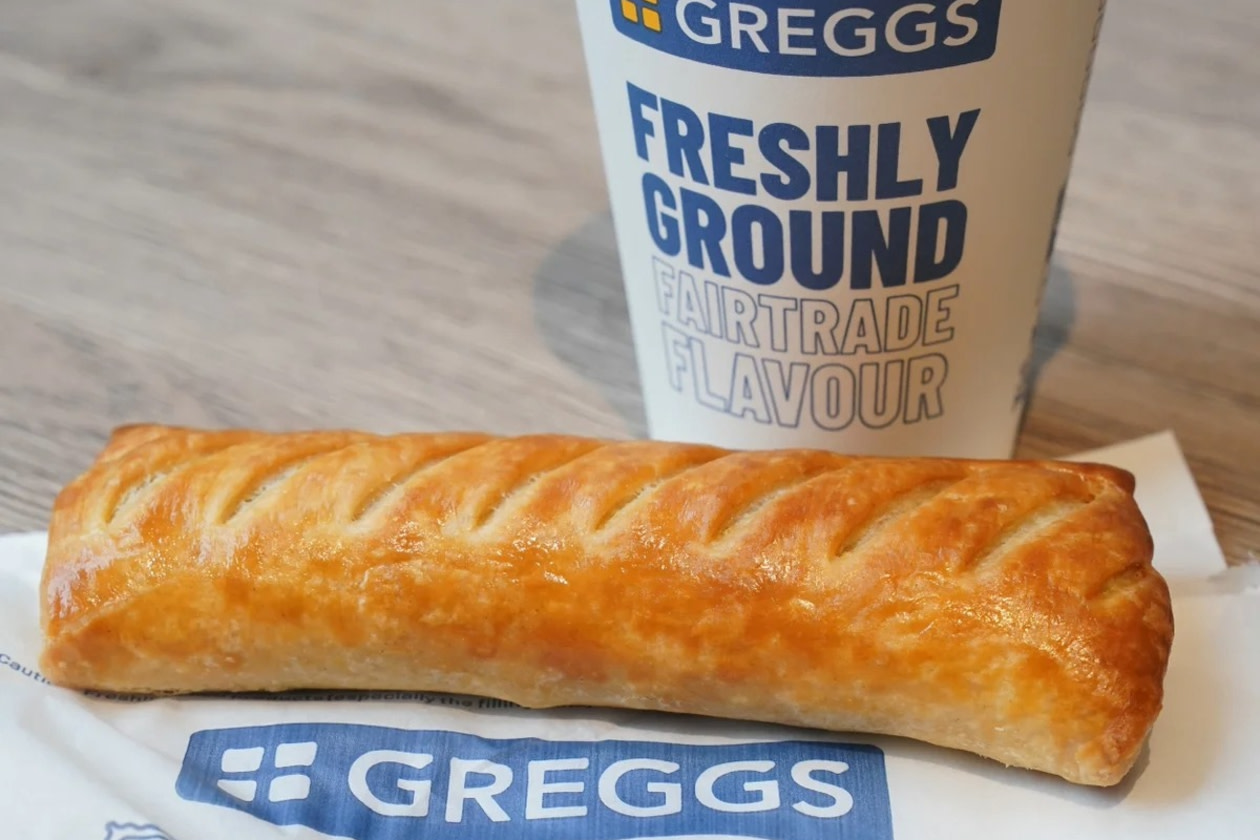Greggs’ first-half sales rose 7.0% to £1.0bn, with growth being helped by new store openings. Like-for-like sales in company-managed shops rose at a slower pace of 2.6%.
Operating profit fell by 7.1% to £70mn. Performance was held back by costs associated with building two new national distribution centres, shop refurbishments being first-half weighted, and mid-single-digit cost inflation.
Free cash flow fell from an inflow of £57mn to an outflow of £41mn due to the increased capital expenditure. Net debt was £3mn at period end, down from a net cash position of £125mn at the beginning of the year.
The full-year outlook remains unchanged, with operating profits expected to be “modestly below” 2024’s level of £195mn, and cost inflation expected to run at around 6%.
A dividend of 19p per share was announced, in line with last year.
The shares fell 1.5% in early trading.
Our view
Greggs’ first-half growth hasn’t been as strong as markets originally hoped, with unfavourable weather being blamed for soft customer footfall and sales. Cost inflation’s running at mid-single digits which has put profits under pressure, and the group now expects a moderate decline from last year’s level.
The cost picture is likely to remain a key challenge this year. Changes to company taxes and minimum wages came into effect in April and are set to rack up costs in the tens of millions.
Price hikes are being leaned on to help offset this and have been the main driver of like-for-like sales growth. But it’s a tough environment and consumer spending is under pressure, so Greggs needs to ensure price increases don’t exceed customer appetite.
Despite the challenges, Greggs is working hard to build the foundations for future growth. The number of shops is set to rise to 3,000 over the next few years, with 140-150 net openings planned for 2025. The menus are being adapted to changing customer preferences, and Greggs is opening later to attract more evening customers – the group’s fastest-growing daypart.
Greggs has also worked hard over the last few years to increase the number of franchised shops to around 20%. We're supportive of this model. Compared to the company-owned sites, these locations aren't on the hook for day-to-day costs and continue to perform well, staying ahead of company-managed shops.
But the store expansion programme and setting up two new distribution centres have been costly. 2025 looks set to be the peak year for these types of investment, but it’s likely to be 2027 before they start driving major benefits. In the meantime, cash flows are likely to remain under a bit of pressure, increasing the risk if sales dry up.
Luckily, the balance sheet remains in decent shape despite slipping to a small net debt position. There’s plenty of liquidity on hand, so we’re not concerned about the group’s financial position.
There's a lot to like about Greggs’ proposition, including its list of growth drivers. But the near-term outlook for consumer spending has started to raise some questions, especially since cash flows are likely to remain under pressure over the next couple of years. The valuation looks appealing relative to the long-run average, but investors will need plenty of patience.
Environmental, social and governance (ESG) risk
Consumer services companies are medium-risk in terms of ESG, and very few companies are excelling at managing them. That leaves plenty of opportunity for forward-thinking firms. The primary risk-driver is product governance. The impact of their products on society, labour relations and environmental concerns are also key risks to monitor.
According to Sustainalytics, Greggs’ management of material ESG issues is strong.
Greggs’ overall ESG reporting is not up to par with leading reporting standards, though it has appointed a board-level responsibility for overseeing ESG issues. A very strong environmental policy and a decent whistleblower programme are in place. Executive-level compensation could benefit from some elements being explicitly linked to sustainability performance targets.
Greggs key facts
All ratios are sourced from LSEG Datastream, based on previous day’s closing values. Please remember yields are variable and not a reliable indicator of future income. Keep in mind key figures shouldn’t be looked at on their own – it’s important to understand the big picture.
This article is not advice or a recommendation to buy, sell or hold any investment.No view is given on the present or future value or price of any investment, and investors should form their own view on any proposed investment.This article has not been prepared in accordance with legal requirements designed to promote the independence of investment research and is considered a marketing communication.Non - independent research is not subject to FCA rules prohibiting dealing ahead of research, however HL has put controls in place(including dealing restrictions, physical and information barriers) to manage potential conflicts of interest presented by such dealing.Please see our full non - independent research disclosure for more information.


